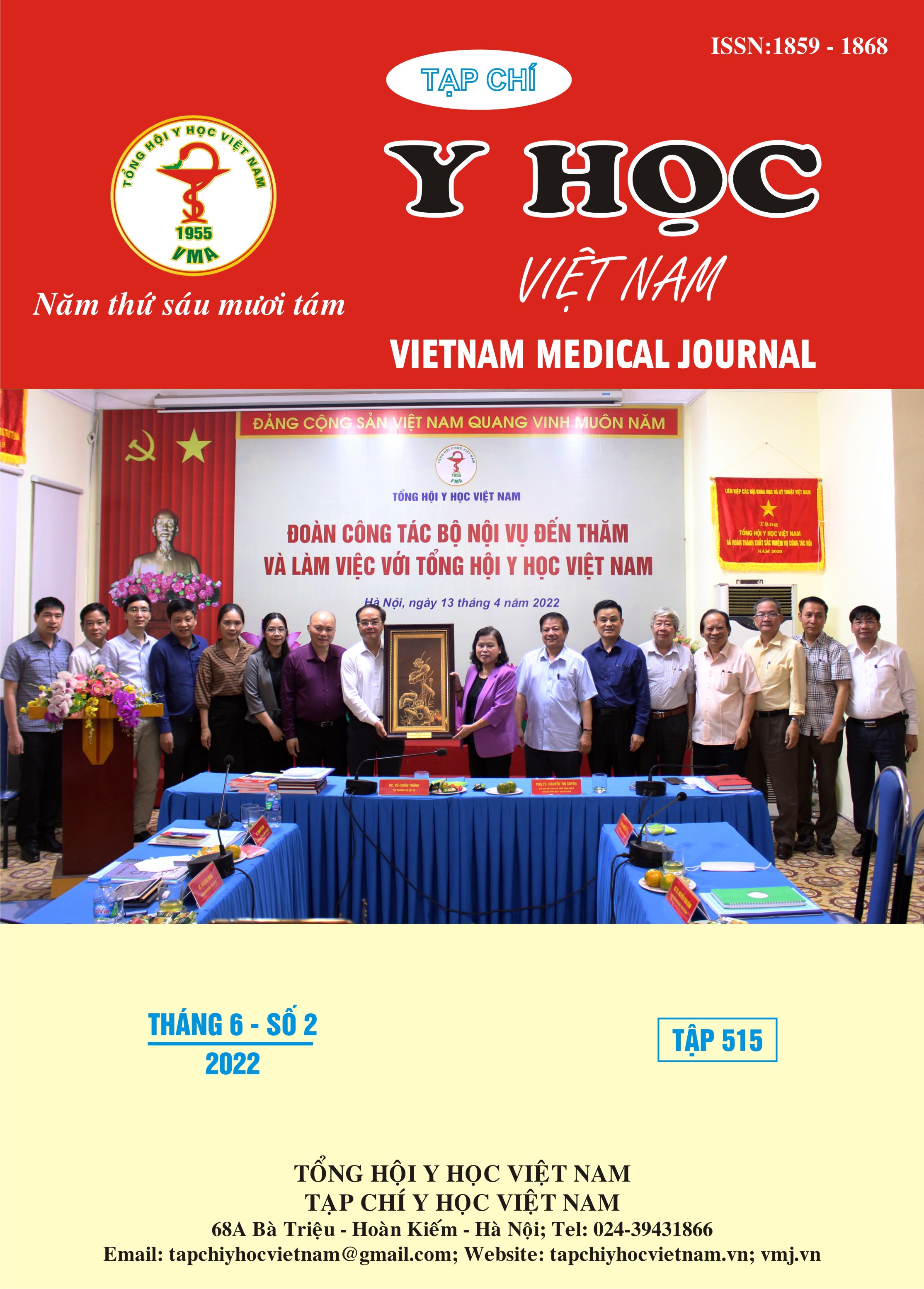DERMATOLOGIC ADVERSE EVENTS INDUCED BY EGFR TYROSINE KINASE INHIBITORS IN EGFR-MUTATION METASTATIC NON-SMALL CELL LUNG CANCER
Main Article Content
Abstract
Objective: Assessing dermatologic adverse events induced by EGFR tyrosine kinase inhibitors for patients with non-small cell lung cancer in the Department of Medical Oncology No1, National Cancer Hospital. Patients and method: 261 patients with metastatic non-small cell lung cancer harboured EGFR and treated with tyrosine kinase inhibitors in the Department of Medical Oncology 1, National Cancer Hospital from 3/2018-04/2022. Method research of description prospective and cross-section. Results: Female was dominated (70.1%) with 65.1% patients less than 65 years old. The most common metastasis was bone metastasis, accounted for 70.1%, then lung metastatis (69.3%). Most of patient had no history of cutanous disease. Major patients was received first generation TKIs with erlotinib and gefitinib, accounted for 39.8% and 45.2%, respectively. Majority of patient had no smoking (72.8%). The majority of patients had AEs rash grade 1 and 2 (36.9% and 44.1%, respectively), one patient presented of grade 4. Paronychia was seen in 63.2% patients, usually grade 1 and 2 (35.8% and 23.6%, respectively), and 6 patients was reported of grade 3. Face-skin was the most common location of cutanous AEs, then chest. Most of patients were outpatient-treated with doctor guides and nursing care, 13 inpatients were reported for medical care at hospital. Conclusion: Dermatologic adverse events induced by EGFR tyrosine kinase inhibitors often Nursing care is extremely important, contributing to improving the quality of life in patients with non-small cell lung cancer treated with TKIs, increasing treatment efficacy and helping the patients to be assured and cooperate in the treatment process.
Article Details
Keywords
EGFR positive NSCLC, EGFR TKI–induced dermatologic adverse events
References
2. Shepherd FA, Rodrigues Pereira J, Ciuleanu T, et al (2005), Erlotinib in previously treated non-small-cell lung cancer., N Engl J Med 353, 123-132.
3. Ling J, Fettner S, Lum BL et al (2008), Effect of food on the pharmacokinetics of erlotinib, an orally active epidermal growth factor receptor tyrosine-kinase inhibitor, in healthy individuals, Anticancer Drugs. 19(2), 209-16.
4. B. Melosky et al (2015). Management of egfr tki–induced dermatologic adverse events. Current Oncology
5. Makoto Maemondo et al (2010). Gefitinib or chemotherapy for non-small-cell lung cancer with mutated EGFR. N Engl J Med. 2010;362:2380-2388.
6. Lecia V Sequist, James Chih-Hsin Yang et al (2013).
7. Aw DC et al (2018). Management of epidermal growth factor receptor tyrosine kinase inhibitor-related cutaneous and gastrointestinal toxicities. Asia-Pacific Journal of Clinical Oncology, 2018;14:23-31.
8. Melosky B. Supportive care treatments for toxicities of anti-egfr and other targeted agents. Curr Oncol. 2012;19(suppl 1):S59–63.


